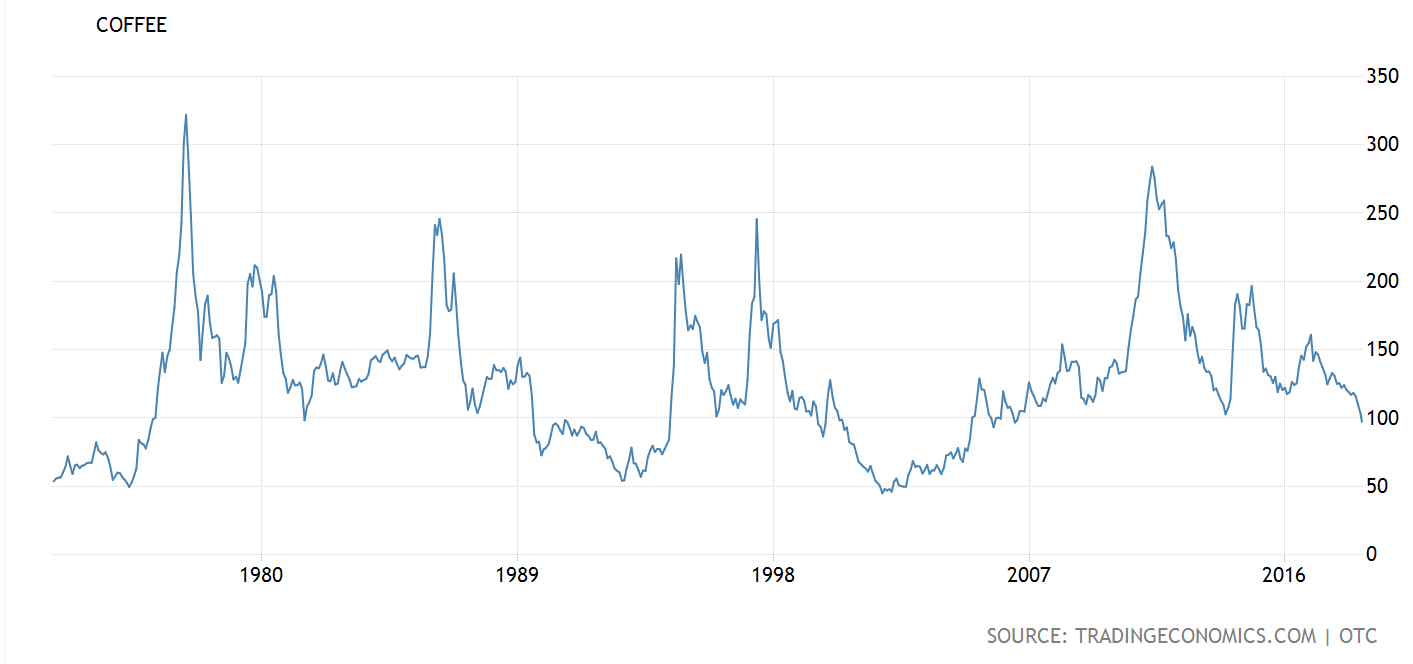For roughly the last two years, the media has been warning us that climate change is threatening the world's supply of coffee beans.
According to the hypothesis, growing conditions for coffee will no longer be suitable in many places, and plagues and pestilences will destroy the crops. If that doesn't kill off coffee, then the lack of pollinators will.
As usual, the media wasn't shy in its headlines. The New York Times bluntly stated "Climate Change Threatens World’s Coffee Supply, Report Says." TIME magazine took it a step further: "Your Morning Cup of Coffee Is in Danger. Can the Industry Adapt in Time?" Newsweek, in its typical "dial-it-up-to-11" editorial style, wrote, "Climate Change Effects Could Mean the End of Coffee Beans."
That's right. The end of coffee beans. We'll have to drink tea. I shudder to think of it. Even Popular Science got in on the action: "Climate change will make your coffee cost more and taste worse."
Thankfully, these are all testable hypotheses. The world has been getting warmer over at least the past few decades, so coffee production should be decreasing, and coffee prices should be going up. Are they?
Coffee Prices Collapse, so Some Farmers Turn to Cocaine
Nope. According to a new report by the Financial Times, prices for coffee beans have hit a 12-year low. But that's only taking into account recent data. If we look all the way back to the beginning of time (which, in this case, is the 1970's), we see that the highest coffee prices, just under $3.40 per pound, occurred in April 1977. Today, the coffee price is about 93 cents per pound.

The price of coffee is not at a historical low, but it is low enough that some farmers have decided to produce cocaine, instead.
The reason behind the current collapse in prices is because Brazil produced a record crop. Once again, this is the exact opposite of the wide-eyed speculation the media had been cramming down our throats over the past two years.
A Media Mea Culpa?
Don't expect the media -- or the scientists who make theses sorts of predictions -- to apologize anytime soon.
Todd Myers, who serves as the Director of the Center for the Environment at the Washington Policy Center, a free market think-tank, told ACSH, "Rather than admit uncertainty, alarmists will simply move on to the next claim. This undermines the scientific method and confidence in scientific integrity."
In other words, instead of admitting that they blew it -- which is exactly what the media should do if it wants to regain its credibility in the eyes of Americans -- they will ignore this and hope that you forgot.
But I don't forget. I never forget.




